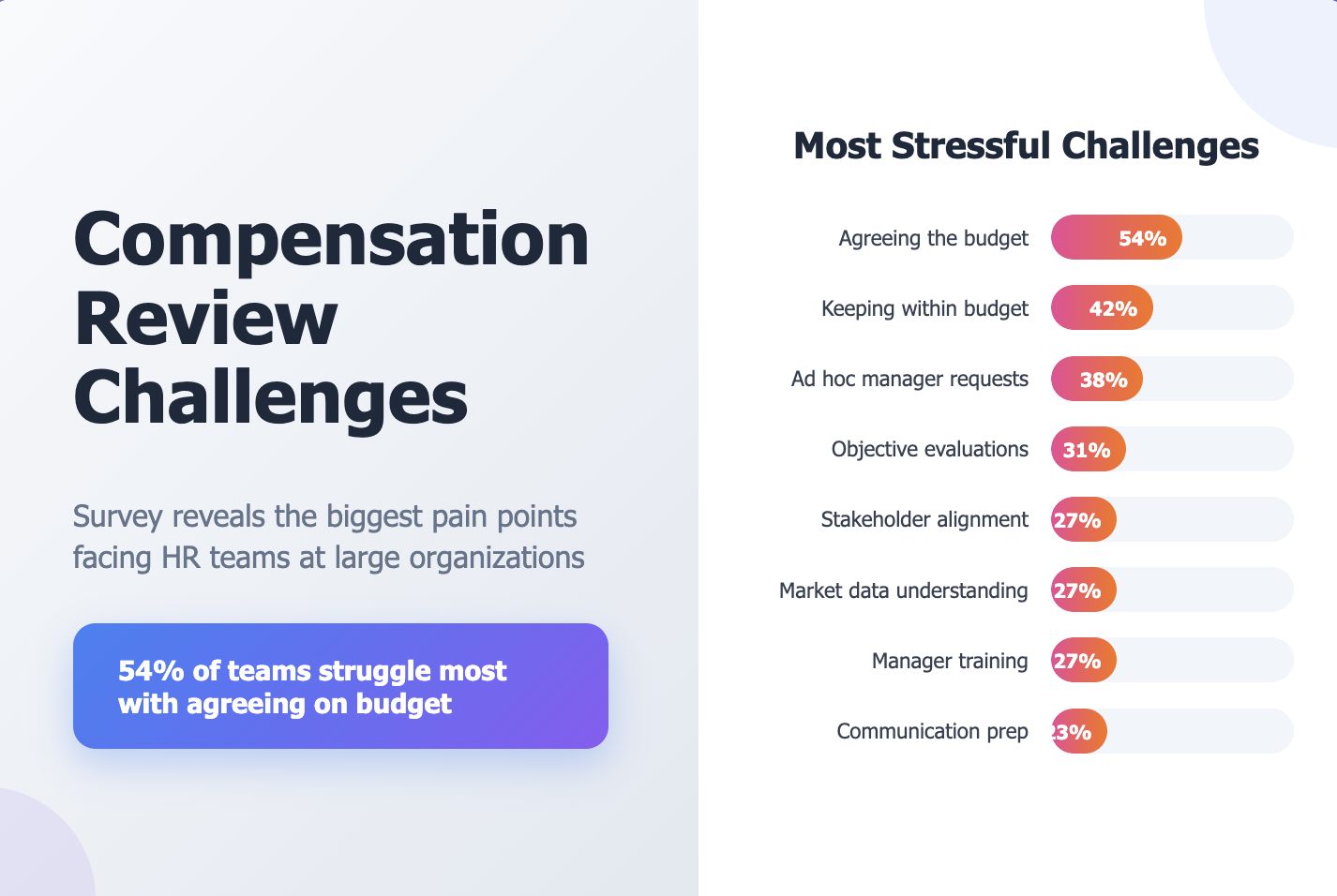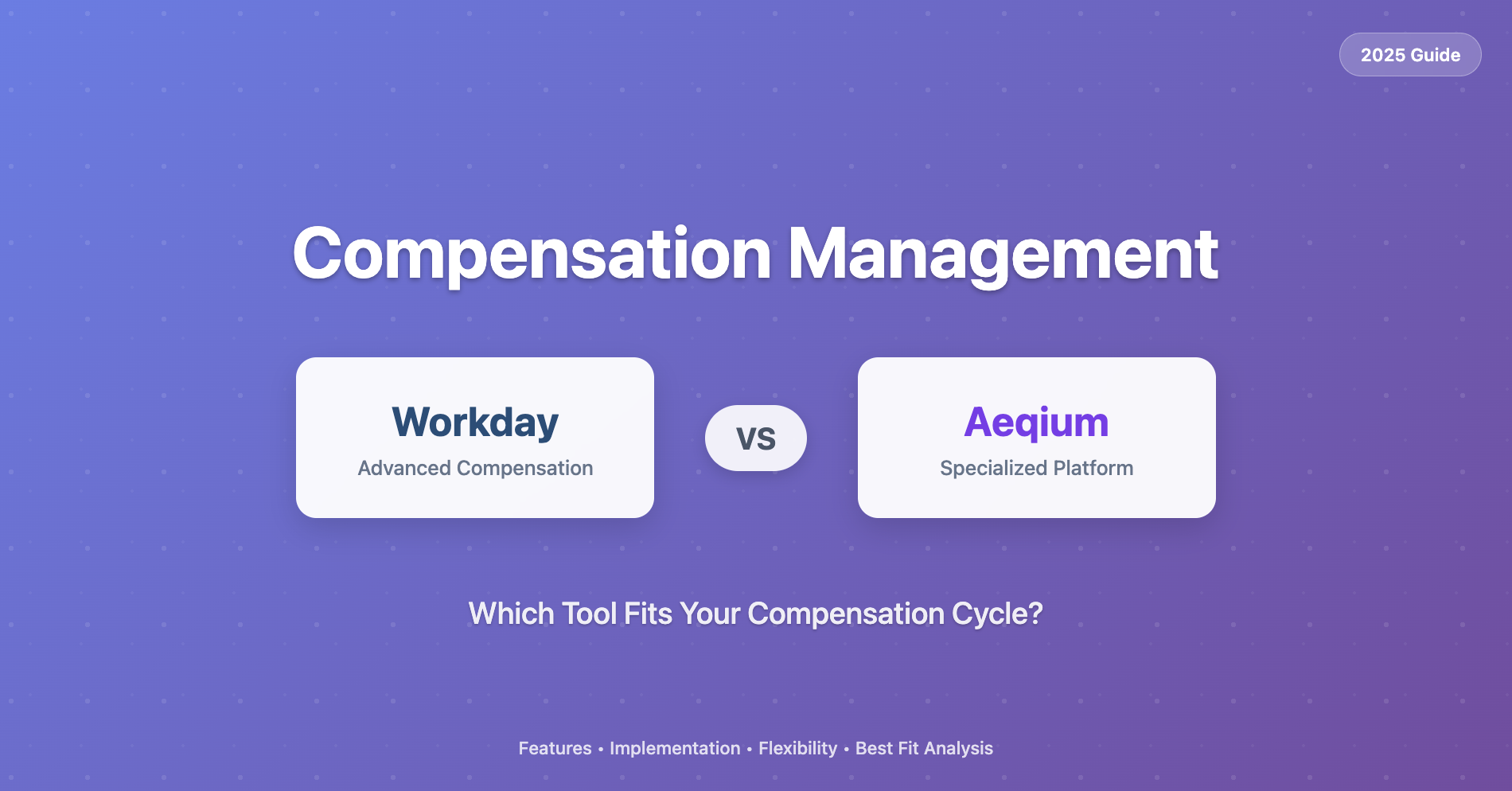What Is a Compensation Philosophy, and How Do You Create One?
.avif)
A compensation philosophy is one of the key elements of a thorough compensation management plan. A well designed compensation philosophy describes a company's approach to determining and providing pay and benefits to its employees. It also serves as a framework for how the company rewards its employees for the contributions that they make to the organization.
Establishing a compensation philosophy allows your organization to accomplish several key goals:
- Setting employees’ expectations with respect to compensation
- Streamlining compensation decisions
- Ensuring fair pay practices
- Creating alignment and consistency both across and within teams
These goals are important for scaling organizations, and can help you accomplish some of the main goals of compensation management overall, such as attracting and retaining top talent. Employees want to know that their work is valued and that they will be fairly compensated for their efforts, and a strong compensation philosophy can also foster a positive company culture and improve employee morale and motivation.
What is a Compensation Philosophy?
A compensation philosophy typically takes the form of an official document that describes a company’s approach to paying employees. For example, a compensation philosophy will describe all of the details that your team needs to know about how your company pays and provides benefits.
In most cases a compensation philosophy will be stored as an internal resource at a company – for example, on a Notion or Confluence page. However, some companies who view their compensation philosophies as recruiting advantages have chosen to publicize them in order to help attract talent.
What Should You Include in a Compensation Philosophy?
It’s important that a compensation philosophy covers several key dimensions of your team’s compensation plan:
- What are your guiding principles? Determine what you are aiming for e.g. external competitiveness, internal equity, transparency etc.
- What your target market will be: For example, if you’re a Fintech company, are you comparing yourself to all technology companies? Financial services firms? Something in between?
- What percentile of the market you intend to target? This is critical as there can be very wide variations in total compensation between lower and higher percentiles of a given market.
- Where is your market data coming from and how are your pay bands established?
- How are you evaluating employees’ salaries and make decisions around compensation? E.g. assessing employee’s proficiency against their job description, performance ratings etc.
- What is your philosophy on benefits? What benefits do you provide?
- How will you adjust cost-of-living for your employees? How will compensation vary for employees in different countries or regions?
- How frequently will you run compensation cycles and re-evaluate employees’ compensation?
- What is the breakdown between base salary, variable pay such as bonuses or profit sharing, and long-term incentives such as equity or Employee Stock Purchase Plans (ESPPs)?
- What is your philosophy on paying for performance? Do you plan to pay team members differing amounts based upon their performance (an extreme version of this are sales jobs in which the majority of compensation is variable), or do you plan to pay employees identically if they are at the same level?
- If you provide variable bonuses, how are they calculated? Are they based upon personal, team, department, or company performance?
- How does your philosophy change for exempt versus non-exempt employees (say, if you have a logistics division that includes hourly team members, as well as a corporate headquarters of salaried employees).
Consider including some or all of the different aspects of pay and benefits above, as well as details about company-specific compensation details that are specific to your situation.
How can a compensation philosophy help promote pay equity and transparency?
Achieving true pay equity goes beyond simply adjusting salaries to account for gender based discrepancies. It requires a holistic approach that includes establishing a robust compensation philosophy.
For example, the gender pay gap remains a persistent challenge in workplaces worldwide, where women, on average, earn less than their male counterparts for performing the same tasks. This disparity is often attributed to various factors, including gender biases, lack of pay transparency, and historical inequities in hiring and promotion practices. By adopting a compensation philosophy that emphasizes fairness, pay equity, and pay transparency, organizations can begin to bridge this gap and create an environment that values all employees fairly and more equitably.
Tips for Creating a Robust Compensation Philosophy
Aligning With Organizational Values
You should consider how your compensation management aligns with your company’s values. Creating a philosophy that is incongruous with your company’s values is likely to cause cultural mismatches.
If you’re a financial services firm whose primary focus is making money, and where your talent will also recruit at companies who pay competitively (think of a Wall Street trading firm), it might make sense for you to compensate very competitively and include high-risk, high-reward forms of compensation such as extreme bonuses. That type of aggressive, bonus-heavy system probably doesn’t make sense if you’re a public school, charity, or another sort of non-profit.
Value alignment extends to benefits as well – if you’re a company that (say) provides services for runners, it can help to bolster your company’s values if you provide benefits centered around running or fitness.
Clear Communication
Make sure to clearly communicate your compensation philosophy to your employees and candidates. This helps ensure that everyone understands the principles and values that guide your approach to pay and benefits, and that expectations will be set effectively. Small mistakes in communication can have many repercussions across the team.
When launching a compensation philosophy for the first time, it's important to also provide enablement to leaders throughout your company in order to prepare them as well as possible for potentially difficult conversations.
Match Your Business Goals
Your compensation philosophy should match your capabilities. If you’re an early stage startup or a family company, it simply might not be possible for you to pay competitively with a huge public company like Alphabet or Microsoft, or smaller elite companies such as a top law firm.
If that means that you won’t be able to pay as competitively, your compensation should reflect that. While it might mean harder conversations with your team and candidates now, setting clear expectations sets you up for success in the long run and can also force strategic conversations that lead to more business strength later. For example, if you aren’t able to pay competitively with the top companies in your local market, perhaps you need to invest in lower-cost locations to fund growth.
These expectations should then be reinforced and ratified by your compensation bands.
Conclusion
A strong compensation philosophy is a key aspect of any successful recruiting and retention strategy. It helps attract the right candidates, promotes fairness and transparency, and guides decision making. By considering your company values, industry and market, and communicating clearly, you can develop a compensation philosophy that sets the foundation for a successful and engaged workforce.




